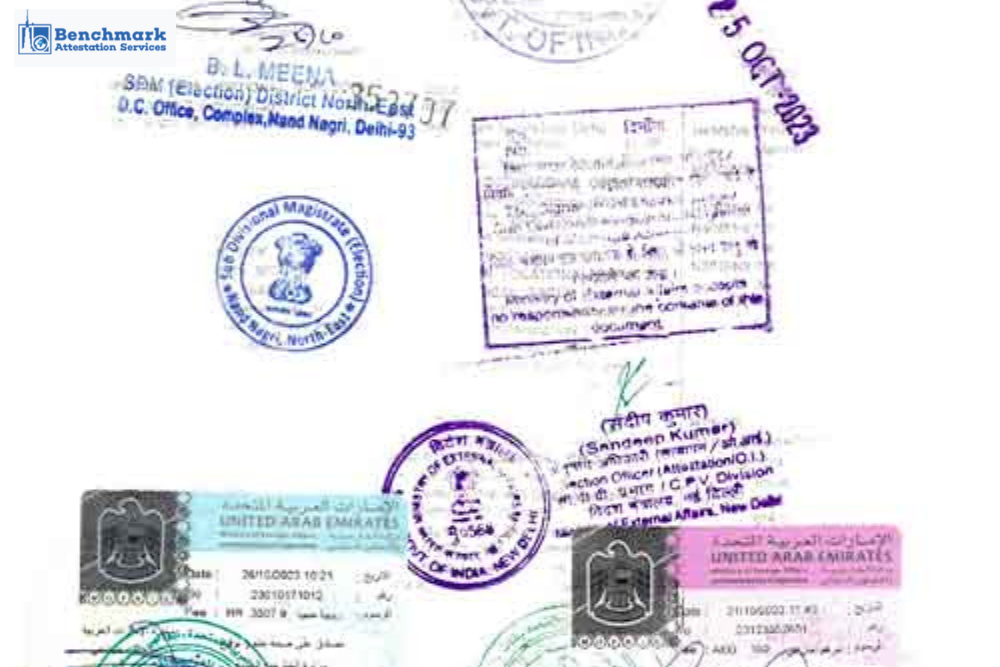Introduction to Apostille Attestation
As the world becomes more connected, the need for globally accepted documentation has never been greater. Whether an individual is moving abroad for education, employment, or business, their personal and professional documents must be verified for use in another country. This verification process is known as apostille attestation, and it plays a vital role in ensuring that documents issued in one nation are recognised as legitimate in another.
The process may seem complex to those unfamiliar with international document legalisation, but its purpose is clear: to build trust between different countries’ authorities by authenticating official papers. An apostille acts as a seal of authenticity, making documents acceptable in countries that are members of the Hague Convention. It saves individuals and companies from unnecessary complications, delays, and legal disputes that could arise from unverified paperwork.
Understanding What Apostille Attestation Means
Apostille attestation refers to the official authentication of documents for international use. It confirms that a document issued in one country has been properly signed, stamped, or sealed by an authorised authority. The apostille serves as a universal certificate that simplifies cross-border document recognition.
The system was created under the Hague Convention of 1961, which aimed to streamline and unify the document legalisation process among member countries. Before the convention, individuals had to go through a lengthy chain of approvals from multiple government departments and embassies. The Apostille simplified this by establishing a single certification that would be recognised by all participating nations.
An apostille stamp typically contains information such as the name of the country issuing the document, the name of the person signing it, the capacity in which they acted, and the official seal of the authority. Once a document receives this stamp, it becomes valid for use in all Hague member countries without further embassy legalisation.
The Purpose and Function of Apostille Attestation
The main purpose of apostille attestation is to ensure that a public document is genuine and can be trusted by foreign authorities. It serves as proof that the signatures, seals, and official stamps appearing on the document are legitimate. Whether it is a birth certificate, academic qualification, or business agreement, this authentication provides the assurance that the document was properly issued by a recognised authority in the originating country.
For individuals, this process is essential for activities such as applying for a job, enrolling in a foreign university, getting married abroad, or settling legal matters in another jurisdiction. For companies, it is a necessary step in establishing partnerships, opening overseas branches, or completing international trade transactions. Without an apostille, such documents might be questioned or even rejected by foreign institutions, leading to unnecessary delays.
Apostille Attestation in the UAE Context
While apostille attestation simplifies document legalisation in many parts of the world, the process in the UAE is slightly different. The United Arab Emirates is not a member of the Hague Convention, which means it does not directly accept apostille-certified documents. Instead, documents must undergo a full embassy legalisation process to be recognised locally.
For instance, if someone wishes to use their foreign-issued documents in the UAE—such as a degree certificate from the United Kingdom or a marriage certificate from Canada—they must first obtain an apostille from their home country’s competent authority. After this, the documents must be submitted to the UAE Embassy in that country for additional legalisation. The final step is attestation by the UAE Ministry of Foreign Affairs, which confirms the validity of the entire process.
This three-tiered process ensures that only verified, authentic documents are accepted for use in the Emirates, maintaining strict standards for official recognition. Though it adds extra steps for expatriates and international businesses, it ultimately protects against forgery and ensures transparency in documentation.
Documents That Commonly Require Apostille Attestation
The need for attestation extends across a wide range of document types. Personal documents such as birth certificates, marriage certificates, and divorce decrees often require authentication for family visa applications or legal proceedings abroad. Educational documents, including degrees, diplomas, and transcripts, must be attested for academic equivalency or employment verification.
Commercial and corporate papers also fall under this requirement. Business registration certificates, trade licences, and power of attorney documents are often apostilled before being presented to foreign governments or business partners. Each document type follows a slightly different verification route, but the ultimate goal remains the same—to prove authenticity and legitimacy beyond national borders.
Why Apostille Attestation Matters for International Recognition
The global acceptance of documents depends heavily on the authenticity of the information they contain. Without attestation, even genuine papers can lose their validity in foreign jurisdictions. For example, a person applying for a residence visa or employment in a foreign country must provide verified documents to prove their qualifications and identity. Similarly, companies entering into international agreements must present attested contracts to ensure their legal enforceability.
This process safeguards both individuals and organisations from potential fraud, protecting them against disputes and legal challenges that could arise due to unverified documents. attestation thus acts as a bridge of trust between countries, promoting smoother global interactions in education, trade, and governance.
The Role of Benchmark Attestation Services in Dubai
For those seeking reliable assistance with attestation in Dubai, Benchmark Attestation Services stands out as a trusted name in the industry. The company offers comprehensive document legalisation support, handling every step of the process with precision and care. Their experienced team understands the complexities involved in dealing with various embassies and governmental authorities, ensuring that clients receive timely and accurate service.
With a reputation built on professionalism and transparency, Benchmark Attestation Services has helped countless individuals and corporations authenticate their documents for international use. They handle sensitive documents with the highest level of confidentiality, ensuring that each certificate or record remains secure throughout the process. Whether it’s for educational, personal, or business purposes, their guidance ensures that all legalisation requirements are fulfilled correctly.
How the Apostille Process Works
The process of obtaining an apostille varies slightly between countries but generally involves several key steps. It begins with verification by the relevant authority in the document’s country of origin—this could be a notary public, a local government department, or an educational institution. Once verified, the document is submitted to the designated authority responsible for issuing the apostille.
For documents meant for use in the UAE, the journey doesn’t end there. After the apostille is obtained, the document must go through embassy legalisation by the UAE Embassy in the issuing country. Finally, the UAE Ministry of Foreign Affairs performs the final attestation to complete the process.
Given the intricacy of these steps, seeking assistance from professionals like Benchmark Attestation Services ensures that no detail is overlooked. They provide end-to-end management, from document collection to final delivery, giving clients peace of mind throughout the procedure.
Common Mistakes and Challenges
Despite being a formalised process, attestation can be delayed or rejected due to common errors. Submitting incomplete documents, using expired copies, or failing to meet specific country requirements are frequent issues. In some cases, the lack of proper translation or notarisation can also lead to complications.
Moreover, the process can differ significantly from one country to another, leading to confusion for applicants unfamiliar with international legalisation procedures. This is where expert assistance becomes invaluable. Experienced attestation service providers can guide applicants, verify documentation, and coordinate with embassies and ministries to avoid unnecessary setbacks.
Frequently Asked Questions
What is the difference between an apostille and embassy attestation?
An apostille is a form of document authentication recognised by countries that are members of the Hague Convention. Embassy attestation, on the other hand, is required for non-member countries such as the UAE, where documents must also be verified by the local embassy and Ministry of Foreign Affairs.
Can all documents be apostilled?
Most official documents, including educational, personal, and commercial papers, can be apostilled. However, photocopies or uncertified versions may not be accepted, depending on the issuing country’s regulations.
How long does apostille attestation take?
The duration depends on the type of document, the country of origin, and the responsiveness of various authorities. On average, it can take from a few days to several weeks. Working with professional services helps expedite the process.
Is apostille attestation mandatory for UAE employment?
Yes. For foreign nationals seeking employment or business opportunities in the UAE, apostille attestation followed by embassy and MOFA attestation is essential to validate their credentials and documents.
Can I handle apostille attestation myself?
While it is possible to complete the process independently, it requires a deep understanding of legal requirements, embassy protocols, and government procedures. Many people prefer to rely on professional support to avoid errors or delays.
Conclusion
In an increasingly interconnected world, apostille attestation serves as the foundation of trust for global document recognition. It ensures that official papers issued in one country are accepted and respected in another, enabling individuals and businesses to operate freely across borders. In the context of the UAE, where additional embassy and ministry approvals are required, professional guidance is crucial for accuracy and efficiency.
Choosing a reliable partner such as Benchmark Attestation Services guarantees that your documents are processed with care, confidentiality, and compliance. Their deep expertise in international legalisation provides clients with confidence that every attestation is handled correctly from start to finish. With the right support, apostille attestation becomes a smooth and stress-free process, opening doors to international opportunities with legally verified documentation.

